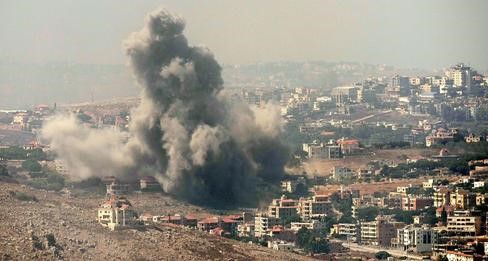
Israel’s assassination of Hassan Nasrallah, who led Lebanon’s Hezbollah for over three decades, has dealt a significant blow to the group and sent shockwaves through the region, pushing it dangerously close to a much wider and more devastating conflict.
The situation began to deteriorate rapidly following a series of coordinated Israeli strikes targeting Hezbollah’s military infrastructure across Lebanon, which included the destruction of thousands of rocket launchers and command posts.
The conflict intensified when Israel expanded its military objectives from the Gaza Strip to include its northern front with Hezbollah on September 17. In a highly sophisticated attack the next day, Israel remotely detonated thousands of pagers used by Hezbollah operatives, followed by an explosion targeting the group’s walkie-talkies. Israel then launched an aerial campaign that took out several senior Hezbollah commanders, resulting in the highest death toll Lebanon has seen in nearly twenty years.
On Friday evening, Israel launched a massive strike on Hezbollah’s headquarters in the southern suburbs of Beirut. The assault killed Nasrallah and leveled entire apartment complexes, injuring scores of civilians in the process. The Iranian embassy in Beirut condemned the strike, describing it as “a dangerous escalation that changes the rules of the game.”
The latest events were the most dramatic since the 2006 war between the two. It all started when Hezbollah began firing on Israel on October 8, 2023, in response to Israel launching its war on the group’s Hamas allies in the Gaza Strip.
The group’s initial strikes were designed to signal support for Hamas in Gaza without crossing a threshold that would force Israel into a full-scale retaliation. However, Hezbollah may have miscalculated the extent to which Israel was willing to take risks to neutralize perceived threats.
Many believe Hezbollah fell into a strategic trap, convinced it could maintain a controlled, low- intensity conflict. This has proven flawed, locking the group into a dangerous game with limited options for de-escalation.
“The group seemed to be operating under the assumption that the established balance of deterrence would hold, not realizing that Israel was prepared to change its approach after the traumatic impact of the October 7 Hamas attacks,” Thomas Juneau, associate professor of public and international affairs at the University of Ottawa in Canada, told Al Arabiya English.
The shift in Israeli strategy is a response to internal pressure within the security establishment and broader society to resolve the situation at the northern border.
“While some voices advocate for a ceasefire in Gaza, there is simultaneously tremendous pressure for decisive action against Hezbollah,” Juneau added.
“The strike against Nasrallah illustrates a readiness to accept greater risks.”
Will Iran intervene in the conflict?
As Tehran observes its most valuable non-state ally being hit hard, speculation grows over how it might respond. Analysts argue the chances of direct Iranian involvement in the Israel-Hezbollah conflict remain low for now. While a symbolic strike could occur, significant military action seems unlikely at this stage.
In a statement on Saturday, Iran’s Supreme Leader Ali Khamenei said, “All resistance forces in the region stand united and support the fight.” He further emphasized, “The fate of this region will be determined by the forces of resistance, with Hezbollah at the forefront.”
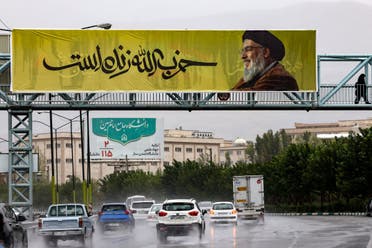
However, Khamenei refrained from outlining any specific steps Iran might take, opting instead to assert that Israel would “regret its actions.”
Khamenei’s remarks were interpreted as a signal of tacit approval for other proxies to engage, while suggesting that Iran itself may have no immediate plans for direct involvement. This calculated ambiguity leaves room for Iran to remain involved without escalating the conflict into a regional war.
“I do not foresee Iran entering into a direct confrontation with Israel, particularly given the current international dynamics,” said Ali Bakir, assistant professor at Qatar University and nonresident senior fellow at the Atlantic Council. “Iran’s original plan was to bide its time until the next US administration, weighing whether to pursue negotiations or asymmetric confrontation with Washington. In either scenario, Iran saw its regional militias, including Hezbollah, as key leverage.”
Iran’s involvement in the escalating conflict between Hezbollah and Israel must be viewed through the lens of its internal political landscape. The confrontation comes at a sensitive time for Iran’s new reformist president, Masoud Pezeshkian, who has prioritized improving foreign relations to pull the country out of its prolonged economic isolation.
Speaking at the United Nations this week, Pezeshkian expressed readiness to re-engage with Western nations regarding Iran’s disputed nuclear program. His appointment of Abbas Araghchi, a diplomat involved in negotiating the 2015 nuclear deal, as foreign minister further signals his administration’s intention to revive nuclear talks.
However, in Iran, the ultimate authority over all state matters – including foreign policy and the nuclear program – rests with the supreme leader, not the president. Therefore, if the Pezeshkian administration is signaling a desire to resume nuclear talks, it can only be doing so with Khamenei’s blessing.
Bakir noted that Iran could have instructed Hezbollah to limit its response, as Tehran has no interest in dragging Hezbollah into a war that doesn’t align with Iran’s interests at this time.
“Iran’s restraint has allowed Israel to intensify its operations against Hezbollah. While Iran may still wish to help Hezbollah recover, the loss of much of its senior command structure makes this a challenging task, and any missteps could backfire,” he said.
But if Iran fails to respond, its credibility within the Axis of Resistance – its network of regional militant groups – could be undermined. There is already growing speculation that Nasrallah’s death may signal betrayal.
“Nasrallah’s assassination could trigger a domino effect, fueling anti-Iranian sentiment and sparking protests against the Islamic Revolutionary Guard Corps (IRGC) within Iran itself,” Imad Salamey, senior Middle East policy advisor and associate professor of political science at the Lebanese American University, told Al Arabiya English.
“As the most trusted and charismatic leader to emerge from the Iranian Revolution, Nasrallah’s perceived betrayal and subsequent killing could provoke widespread discontent against the IRGC and their regional allies.”
‘No red lines left’
Israeli jets continued non-stop bombardments across Lebanon, with the military saying it “attacked dozens of terrorist targets in the territory of Lebanon in the last few hours.”
More than 1,000 people have been killed and more than 6,000 wounded as a result of Israeli attacks in the past two weeks, the health ministry said, and about one million Lebanese have been displaced by the strikes, including hundreds of thousands since Friday, Nasser Yassin, the minister coordinating the government’s crisis response, told Reuters on Saturday.
Meanwhile, Iran’s parliament speaker Mohammad-Bagher Ghalibaf said on Sunday that militant groups would carry on confronting Israel with Tehran’s help following the killing of Nasrallah, Iranian state media reported.
Experts see that there seem to be no red lines left, as the traditional rules of engagement have been entirely violated by both sides.
“Hezbollah’s attempts to launch retaliatory attacks deep into Israel aim to uphold its resistance narrative, but its capabilities have been sharply reduced by Israel’s precise strikes,” explained Salamey. “On the other hand, Israel has capitalized on Hezbollah’s weakened position to expand its military campaign into Lebanon and even Syria. The goal is to cripple Hezbollah’s operations, cut off its supply lines with Iran and severe its ties with Hamas, undermining Iran’s influence in the region.”
Violence likely to intensify
Netanyahu has vowed to keep fighting until the border with Lebanon is secured.
While diplomatic efforts are underway to end the war in Gaza, diplomats believe these talks are crucial to also halting the fighting in Lebanon and bringing the region back from the brink.
Analysts predict that a truce will eventually be reached, but not before further escalation unfolds. The killing of Nasrallah marks the beginning of a potentially prolonged conflict, rather than the end.
“Israel sees a strategic advantage after weakening Hezbollah,” said Juneau. “As a result, I believe Israel will aim to further exploit this opportunity rather than consider a diplomatic resolution, which would require a ceasefire and halt its momentum.”
He added: “Iran’s cautious stance, avoiding direct involvement, also encourages Israel to continue its operations. So, I expect the violence along both the Lebanon and Gaza fronts to persist for some time before any serious talk of diplomacy arises.”
Given the current balance of power, a truce at this stage could be framed as a strategic victory for Israel, according to Salamey.
“To preserve its image, Hezbollah might resort to its pre-2000 guerrilla warfare tactics if it can reorganize,” he said.
“However, with Iran potentially seeking a new regional peace deal and concessions on its nuclear program, Hezbollah could be sacrificed as part of a broader diplomatic arrangement. If so, the group may frame any truce as a tactical pause, allowing it to regroup and preserve its narrative of ongoing resistance, despite the significant losses it has incurred.”



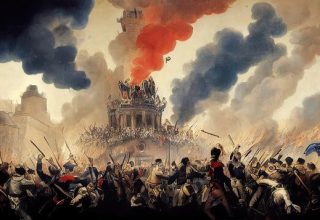

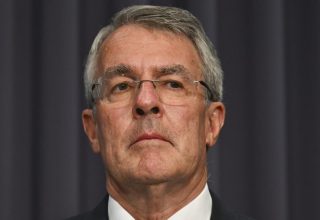
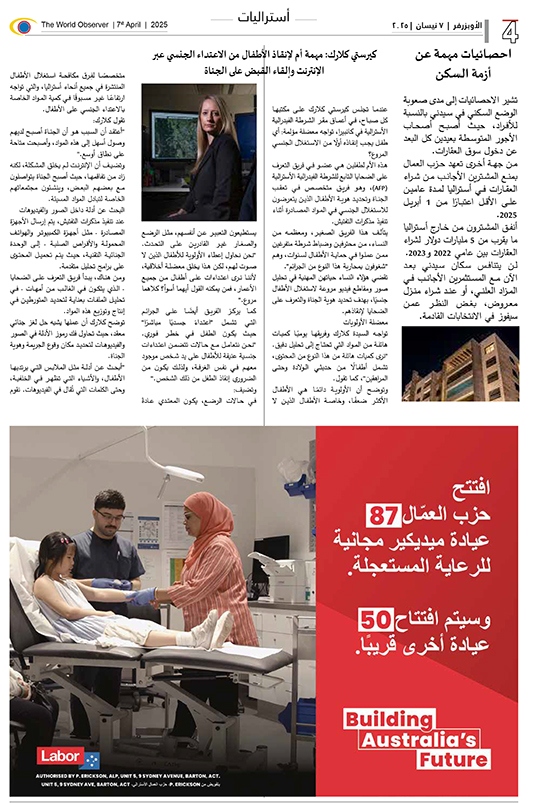
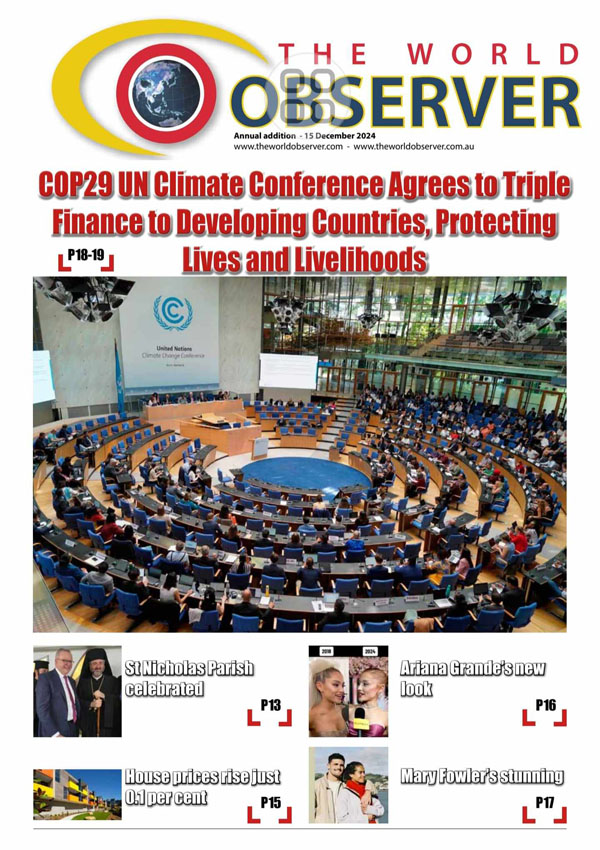
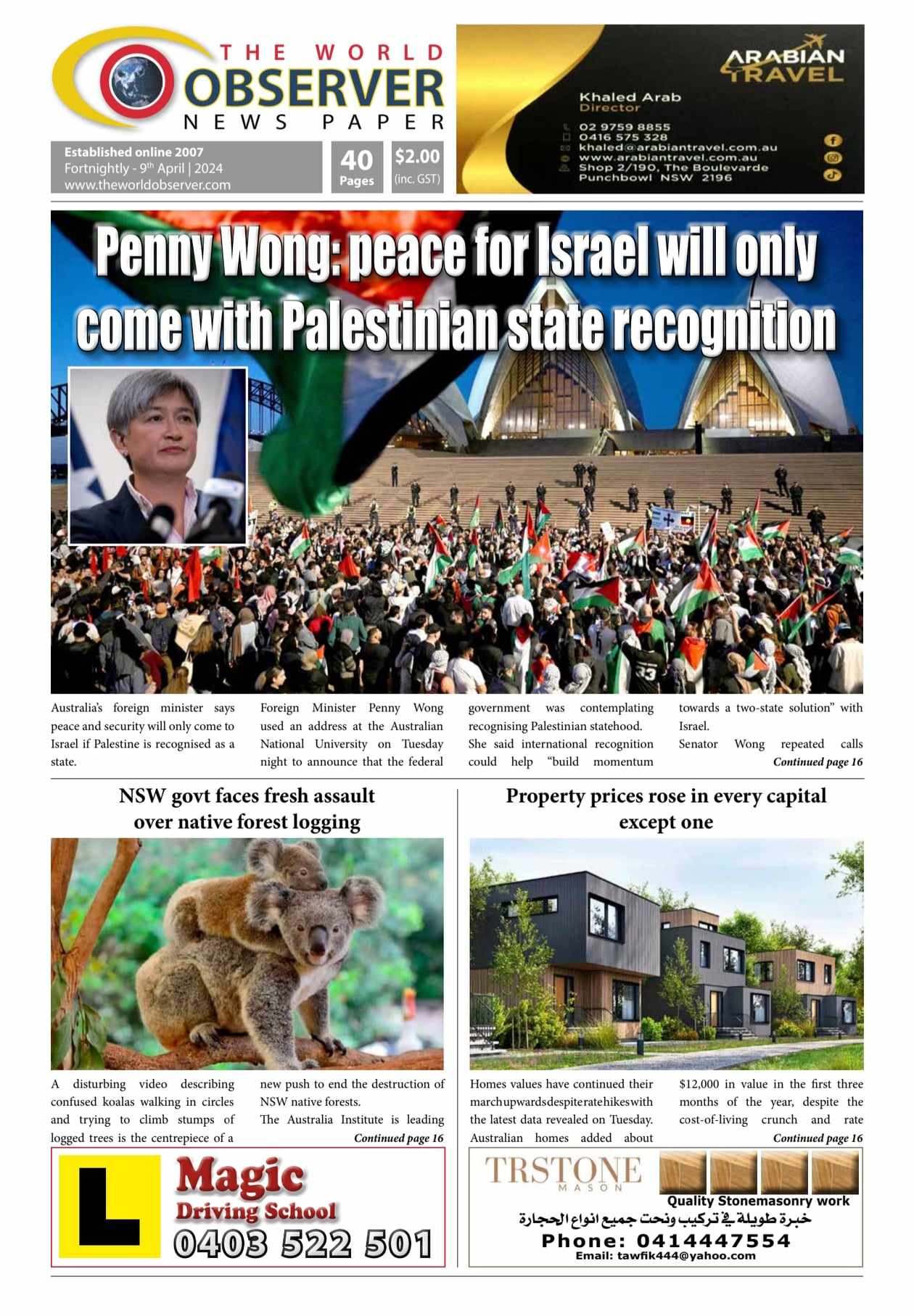

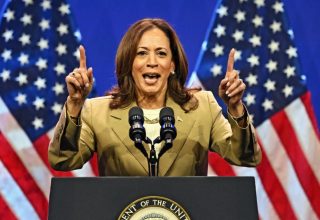



























 The World Observer Media produces a daily online newspaper, a daily Arabic online newspaper and a monthly printed Arabic/English magazine and a weekly printed Arabic/English newspaper.
The World Observer Media’s mission is to entertain and educate all generation from the Ethnic Communities in Australia, who are interested in local, national and foreign information.
The World Observer Media produces a daily online newspaper, a daily Arabic online newspaper and a monthly printed Arabic/English magazine and a weekly printed Arabic/English newspaper.
The World Observer Media’s mission is to entertain and educate all generation from the Ethnic Communities in Australia, who are interested in local, national and foreign information. 


